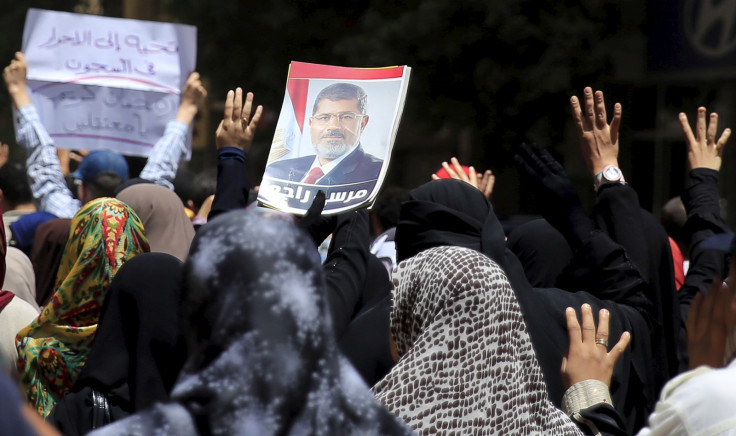Muslim Brotherhood: London is a base for extremists that fight the integration of British Muslims

For over 14 years I have been engaged in documenting and writing about what I came to call the Global Muslim Brotherhood, which I have defined as a global network developed by Muslim Brothers (Ikhwan) who fled their home countries and settled in Europe and the United States where they went on to found what has become some of the most prominent Islamic organizations in their new home countries.
On more than one occasion, critics have labelled this conspiracy theory thinking and the Egyptian Muslim Brotherhood once famously called the idea 'a Hollywood Fiction'. The release of Britain's Jenkins report on the Muslim Brotherhood on December 17 is, for me at least, a complete vindication in describing how Europe became an important base for the growing Muslim Brotherhood global network.
Beyond that acknowledgment, the UK report also supports what I have also tried for years to document, that the Global Muslim Brotherhood has a highly problematic relationship to violence and is prepared to countenance violence – including, from time to time, terrorism - where gradualism is ineffective.
The Muslim Brotherhood in the UK, using London as a base, claims to act in support of other Muslim Brotherhood organisations around the world and that this activity is sometimes secretive, if not clandestine.
The reality is actually far worse, as a forthcoming report that I have authored will demonstrate how important Global Muslim Brotherhood leaders from around the world, including the UK, have sat down at the table in an organization that is led by and includes individuals designated by Western governments as terrorist and terrorist financiers. That same organization has made it abundantly clear that it considers "The West" to be the primary enemy of the Islamic world.
Further confirming what I have struggled to get acknowledged is that Muslim Brotherhood groups in the UK are connected to a wider network of Global Muslim Brotherhood organizations. The report identifies the Muslim Association of Britain (MAB) as part of the Federation of Islamic Organizations in Europe (FIOE) and concurs with what I wrote in 2008, that FIOE represents the Muslim Brotherhood in Europe.
Even more surprising is the statement in the report that UK charities such as INTERPAL, despite wholly inadequate investigations by the UK Charity Commission, are part of the Hamas and Brotherhood infrastructure in the UK, something I reported in 2009.
Beyond the focus on terrorism, I have also at times tried to move discussion about the Global Muslim Brotherhood beyond terrorism to a focus on how the Brotherhood networks impact the social fabric in the various countries where it is operating.
Once again, the UK report supports what I have long argued which is that the Brotherhood works counter to the successful integration of Muslim immigrants by promoting the view that "Western society is inherently hostile to Muslim faith and interests and that Muslims must respond by maintaining their distance and autonomy."
However, far more important than the satisfaction I experienced in seeing my long-held views endorsed by a major Western government is the question of what should be done in light of the report findings. While some suggest that a UK ban on the Muslim Brotherhood is in order, it is not altogether clear how such a ban could work given that there is still no "official" definition of who or who is not part of the Muslim Brotherhood or even exactly what constitutes the Global Muslim Brotherhood.
Such a ban would also likely be prone to the phenomenon seen in Germany when various far-right groups are banned only to be re-constituted under a different name and organizational structure. A blanket ban might also raise the risk of allowing the banned organizations to claim that they are being discriminated against, further reinforcing the narrative referred to above that the West is hostile to Muslims.
Far more useful would be a UK governmental blanket policy of denying any imprimatur of legitimacy to UK Muslim Brotherhood groups, something which the very same groups seek at all costs as they strive to be recognised as the sole representatives of the Muslim community. Under such a policy, government would simply refuse to engage with, support, fund, or in another way lend support to any group that it has found to be part of the Global Muslim Brotherhood network.
At the same time, recognition and support should be accorded to any legitimate Muslim organization that is found to be acting without significant ties to the Brotherhood or any other Islamist group. Such recognition of alternative voices would also serve to counter the far-right narrative that Islam itself, rather than Islamist groups such as the Muslim Brotherhood, is the heart of the problem as well as negating any accusations of "Islamophobia."
Perhaps most important of all is the report's finding that the Muslim Brotherhood in the UK, using London as a base, claims to act in support of other Muslim Brotherhood organizations around the world and that this activity is sometimes secretive, if not clandestine.
Yet once again, I have long argued that there is a substantial limit to what we can know about the Global Muslim Brotherhood by using the kind of open source information to which analysts such as myself are limited. To gain further access to the secret workings of these organizations will required dedicated action by national law enforcement and intelligence agencies who can and must take appropriate action when instances of illegal or anti-democratic behaviour is found.
This is only a question of political will and the release of the Jenkins report appears to denote that UK has taken the lead in West in going down that path.
Steven Merley is the editor of the Global Muslim Brotherhood Daily Watch which tracks developments in the worldwide networks of the Muslim Brotherhood.
© Copyright IBTimes 2025. All rights reserved.





















